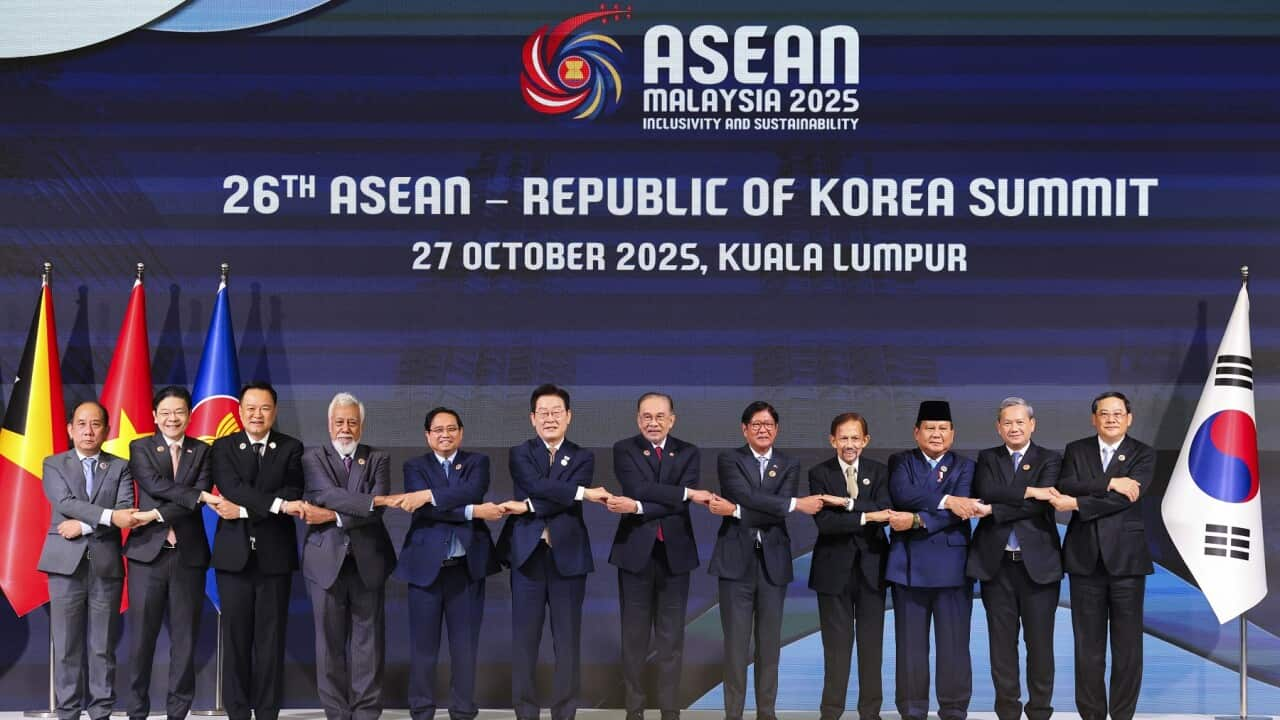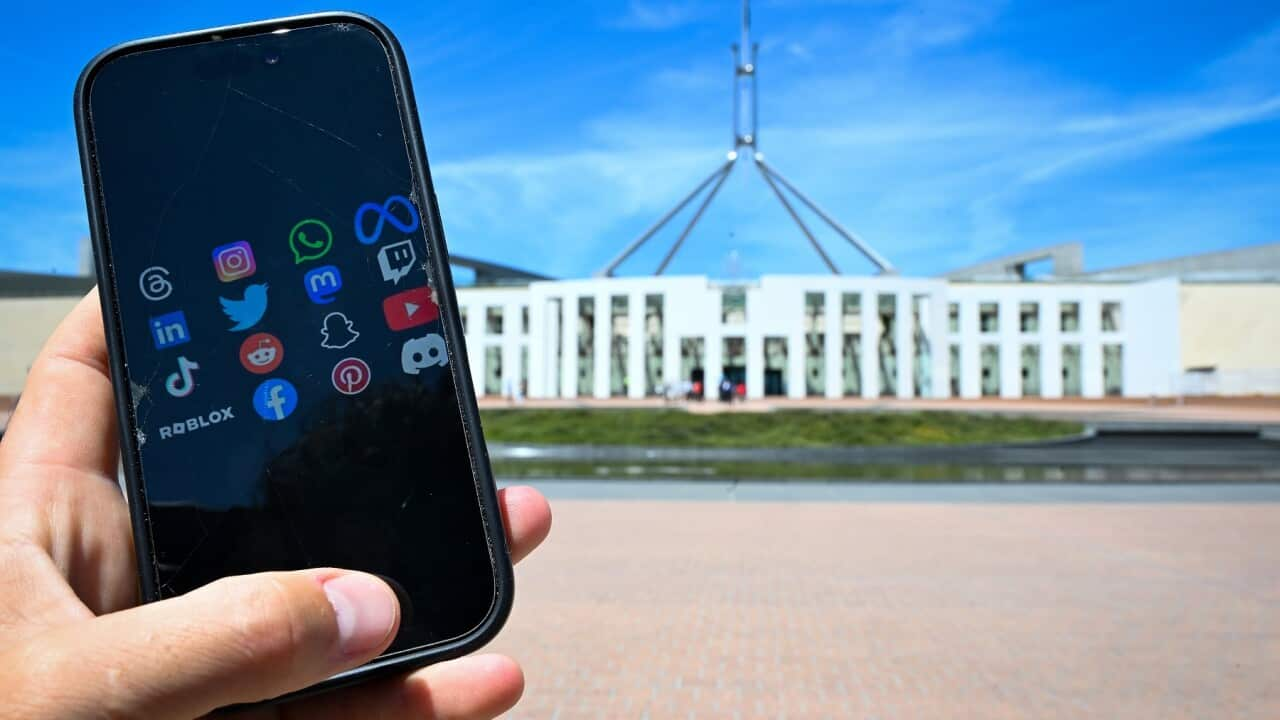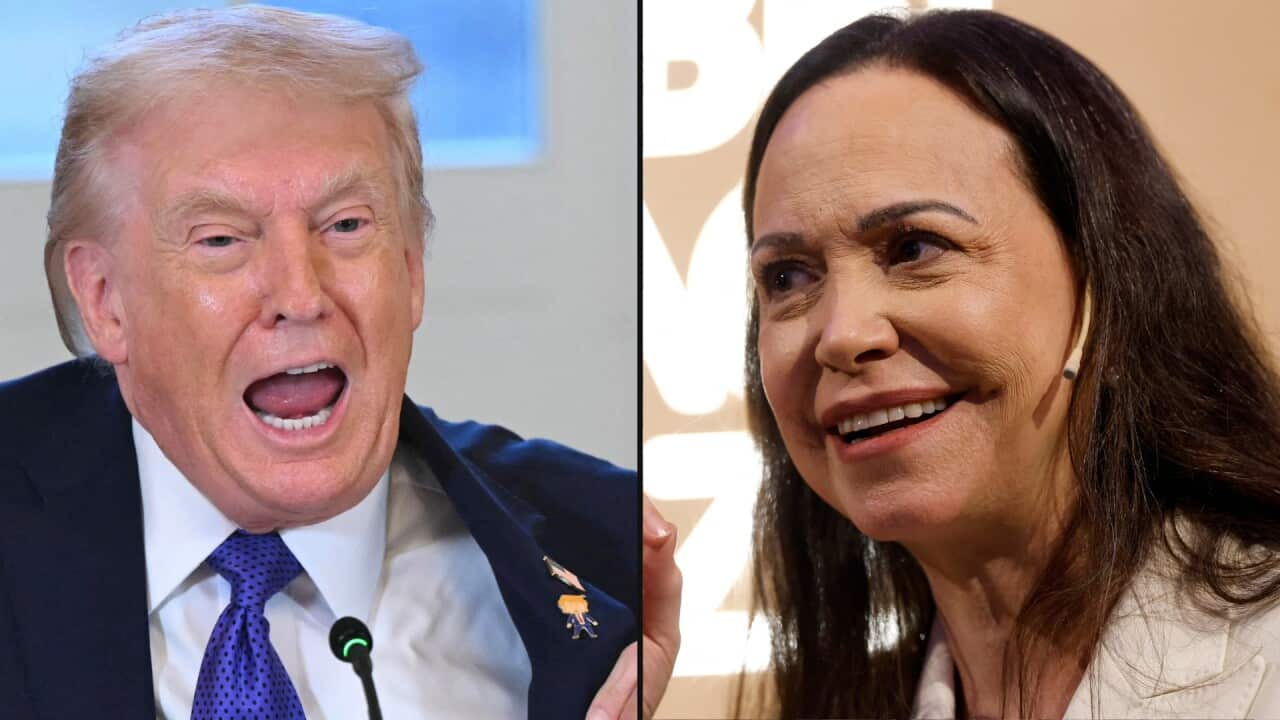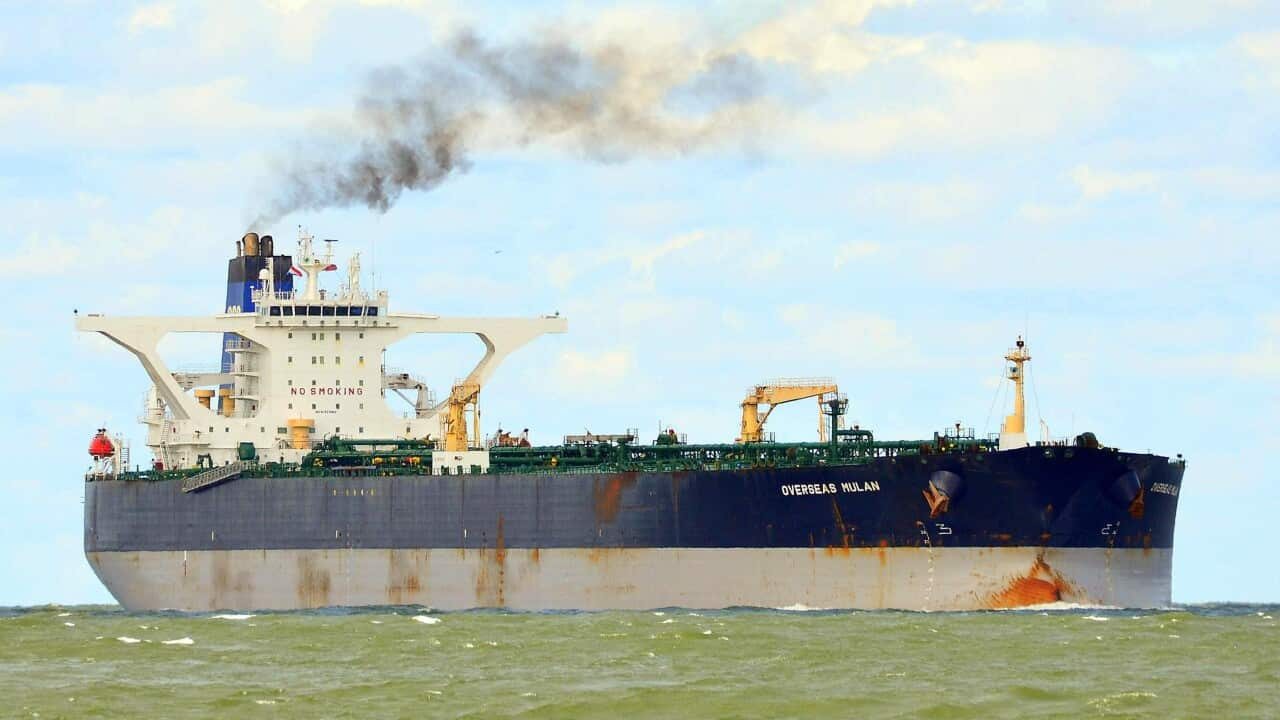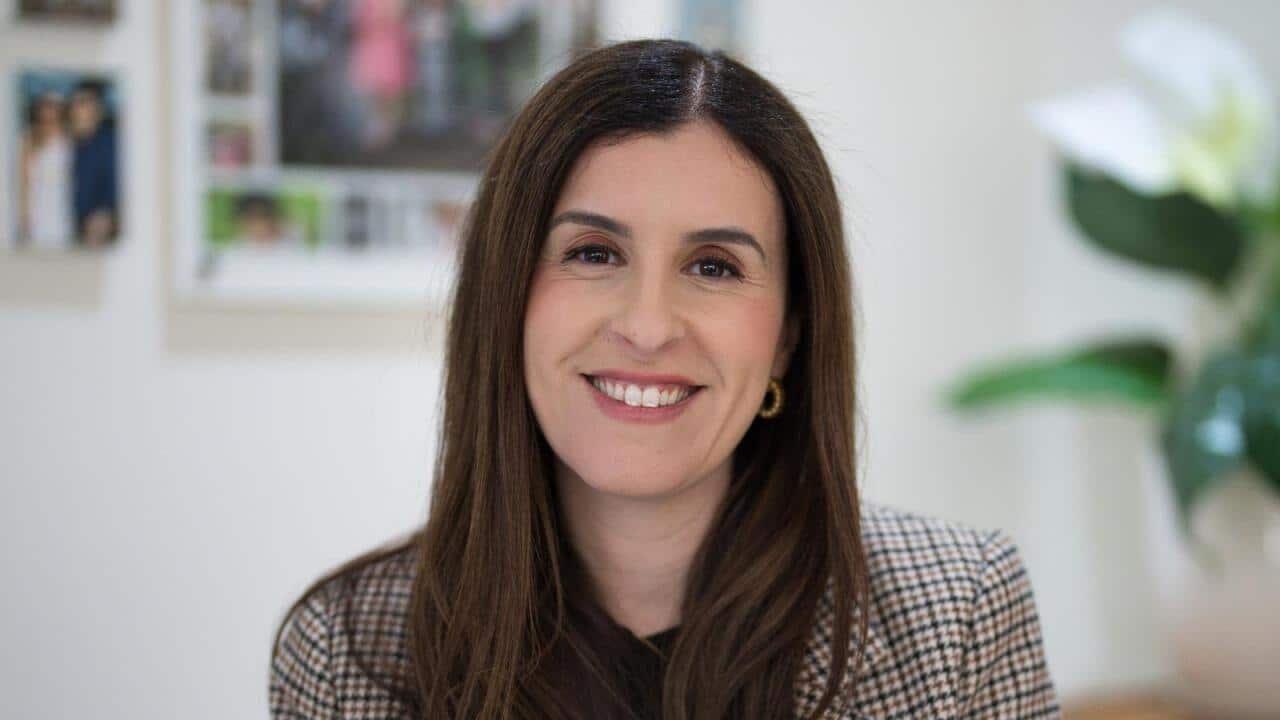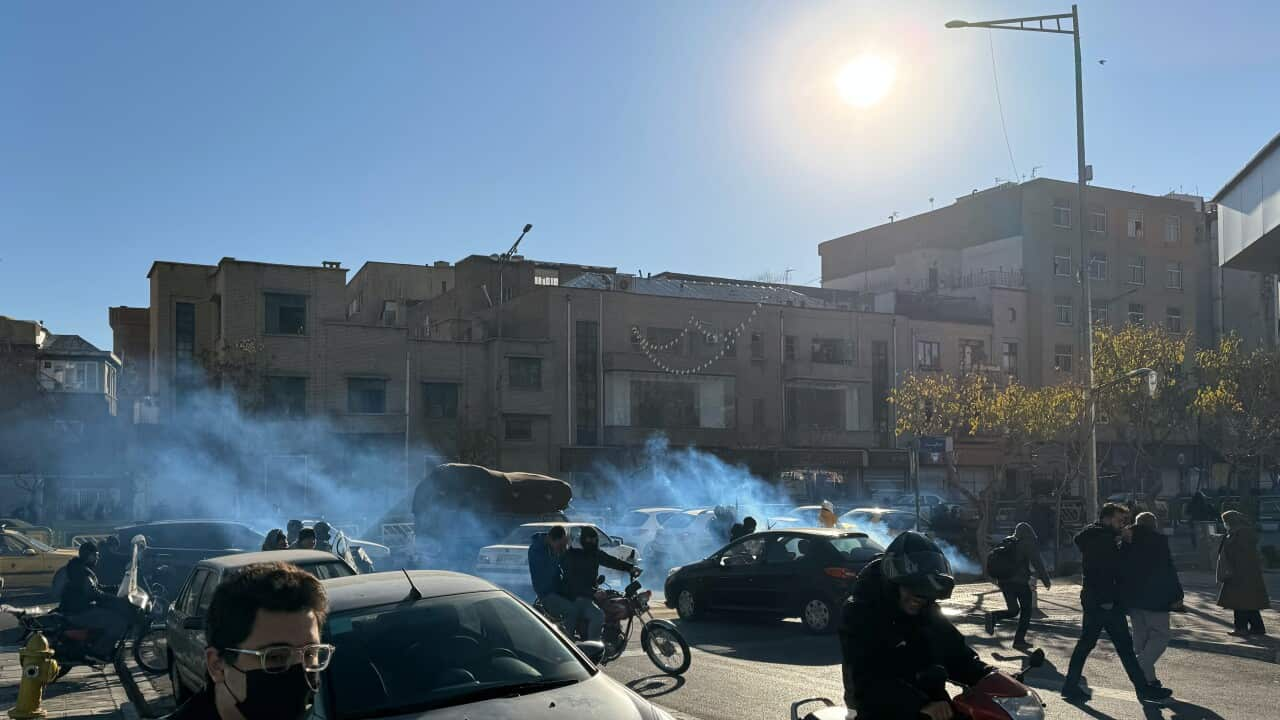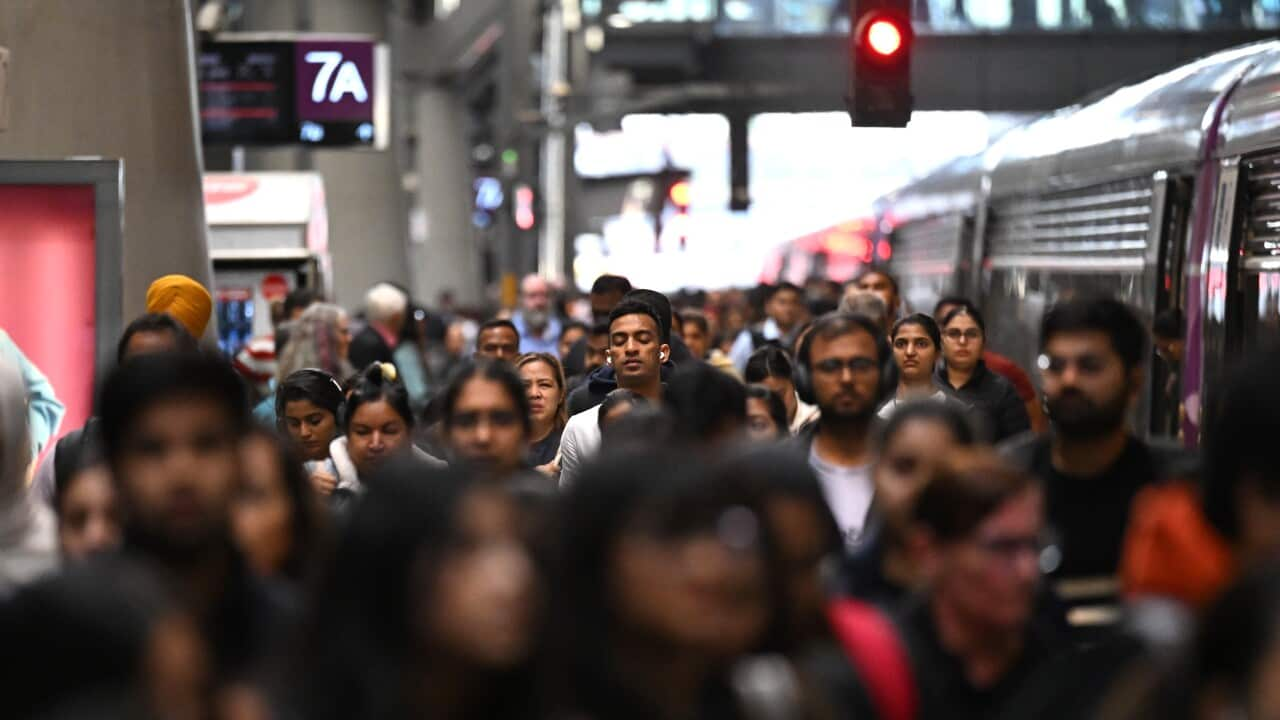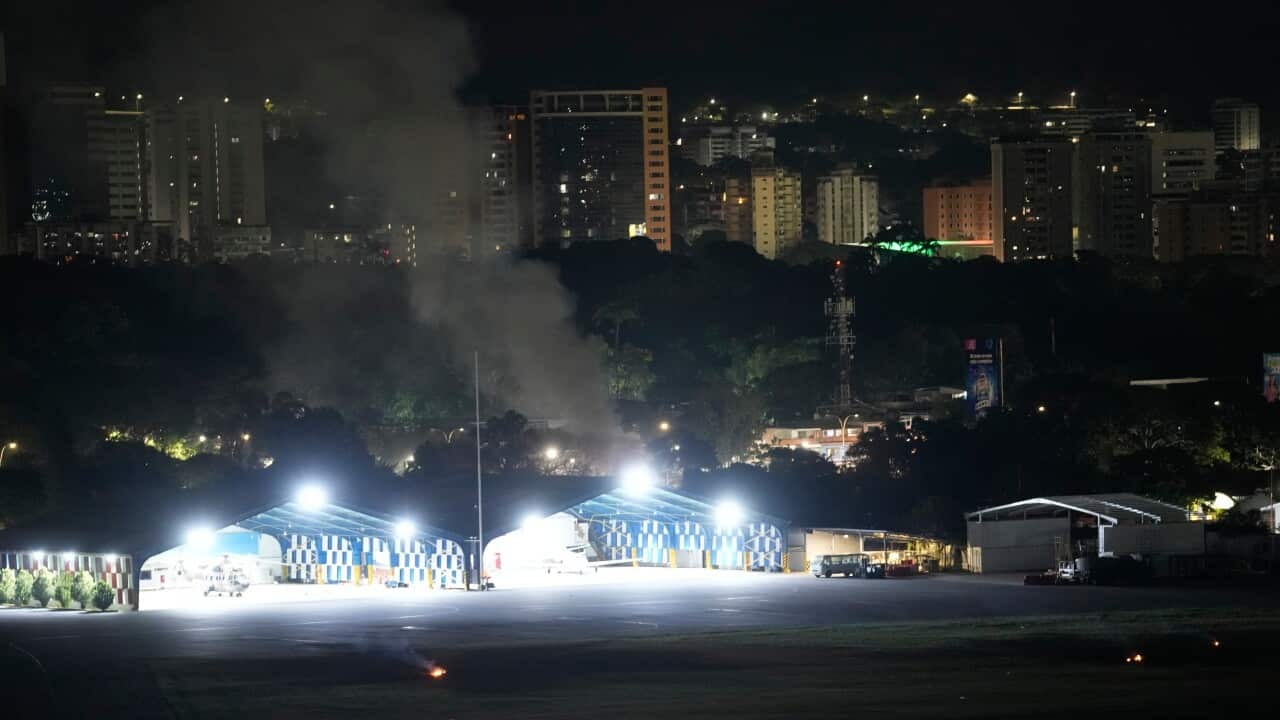TRANSCRIPT:
"Today history is made. Timor-Leste has been admitted as the 11th member state of ASEAN. For the people of Timor-Leste this is not only a dream realised, but a powerful affirmation of our journey."
Australia's close neighbour Timor-Leste has acceded to the Association of Southeast Asian Nations grouping.
The historic step is the culmination of a longstanding ambition, and arrives more than two decades after a bloody fight for self-determination won its independence.
Prime Minister Xanana Gusmao has stood proudly, interlocking arms with the bloc's 10 other regional leaders in the Malaysian capital – a traditional ASEAN gesture of unity.
"Our ascension is a testament to the spirit of our people, a young democracy, born from struggle, now embracing a new era of collaboration and growth within one of the world’s most dynamic regions."
The tiny South East Asian nation's accession is seen as one of the crowning achievements of Malaysia's chairmanship.
This is Prime Minister Anwar Ibrahim welcoming ASEAN's first new member in 26 years.
"Its (Timor-Leste's) place here completes the ASEAN family, reaffirming our shared destiny and deep sense of regional kinship. Within this community, Timor-Leste's development and strategic autonomy will find firm and lasting support."
Timor-Leste is the youngest country in South East Asia, having gained independence from Indonesia in 2002 after 24 years of often-brutal occupation.
President Jose Ramos-Horta has long campaigned for ASEAN membership, and an application was first submitted in 2011 during his first term.
Timor-Leste has sought membership for the greater prominence it would bring on the regional stage, as well as the bloc's free trade deals and other opportunities for economic cooperation.
While granted observer status to the regional body in 2022, its full membership was delayed.
Director of the Lowy Institute's Southeast Asia Program, Susannah Patton, says there have been challenges to overcome.
"Timor-Leste is a very small country – just 1.3 million people, which makes even some of ASEAN's current smaller members like Laos look like giants by comparison. ASEAN is a very busy regional grouping. They are famous for holding more than a thousand meetings a year ... and so participating in that agenda is a real challenge for a small country with limited bureaucratic capacity. All of ASEAN's meetings are also held in English and English language is a challenge for Timor-Leste based officials."
Australia has long supported Timor-Leste's membership bid.
Upon being granted observer status in 2022, Prime Minister Anthony Albanese said:
"As Timor Leste's largest development partner, Australia is committed to providing capacity building to support its full ASEAN membership."
In August this year, Australia committed $11.8 million to facilitate Timor-Leste's accession to both ASEAN and the World Trade Organisation.
The package included English language training to build its institutional capability to engage with ASEAN mechanisms, and supports to fulfil security and membership requirements.
But Timor-Leste continues to grapple with high levels of inequality, malnutrition and unemployment.
It hopes that joining the bloc will open the way for greater economic development.
Susannah Patton says the benefits may take some time to flow through one of the poorest nations in Asia, which remains heavily reliant on oil and gas revenue.
"I think the fact that Timor-Leste's level of economic development is quite low means that in practice the ability to benefit from some of the trade arrangements will be quite limited because they don't necessarily have a lot of businesses that are going to benefit from the greater export opportunities that come from membership of these free trade arrangements. There are certainly opportunities there, but there will still be questions about how able they are to take advantage of them."
Susannah Patton suspects Timor-Leste will face adjustments beyond getting across the agenda of ASEAN in a bureaucratic sense.
Its foreign policy culture is currently at odds with the bloc's tradition of "non-interference" – a core principle that prohibits intervention in the internal affairs of other member states.
By contrast, Timor-Leste's bloody history and hard-won stability has spurred strong support of United Nation's peacekeeping efforts and external interventions like mediation initiatives.
Ms Patton says its membership could push ASEAN to reform in positive ways, by bringing valuable experience in post-conflict reconstruction and democratic transition.
"This is a group which most observers agree is in need of reform. It can be quite slow moving because of the norms around consensus and non-interference. It's really limited its ability to respond effectively to the conflict in Myanmar. So perhaps having a new member, which takes a fresh approach on things could actually push ASEAN to take some new approaches, some new and fresh approaches, which I think would be a welcome development."
